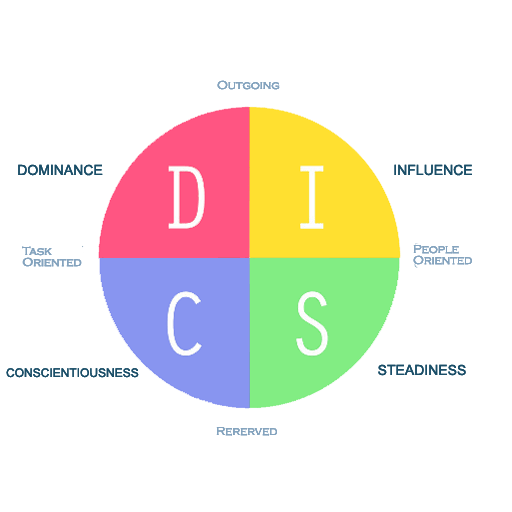United States
DISC is a self-assessment which measures the everyday behaviour, and the natural way of doing things in individuals and profiles them according to four personality traits, Dominance, Influence, Steadiness and Conscientiousness.
Start AssessmentRead on for more details
Each individual will have all four traits in some measure and the final result will be a combination of all four. Let’s take a look at each of these:

Dominance (D): Dominance measures the emphasis a person places on being in control of a situation. A high D value indicates that the individual is independent, straight-talking and motivated by success.
Influence (I): Influence is an indicator of how a person interacts with others and persuades or influences them. People with a high I style are motivated by relationships and social recognition and value taking action.
Steadiness (S): Steadiness is a description of an individual’s temperament in terms of co-operation, dependability, sincerity etc. People with a high S style enjoy collaborating and providing support and are patient, calm and loyal in nature.
Conscientiousness (C): Conscientiousness refers to the emphasis individuals place on ensuring accuracy and maintaining quality in fulfilling their responsibilities. A high C style person is tactful and cautious and will value stability and reliability.
The DISC assessment helps individual get a better understanding of themselves and how they interact with their environment. This self-knowledge will lead to improved communication with the people around them and facilitate better conflict resolution, stress management, greater teamwork etc. It only discusses an individual’s personality in terms of adjustments and adaptations that facilitate interpersonal relationships and does not strive to pass any judgments on the individual’s values, intelligence, aptitude etc.
References

